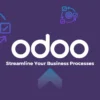The Main Contenders: Ease vs. Power
The choice generally boils down to three categories: all-in-one DIY builders, dedicated e-commerce platforms, and powerful, flexible content management systems (CMS).
1. All-in-One Builders (like Wix & Squarespace): The Quick & Easy Start
These platforms are famous for their drag-and-drop interfaces, making it possible to create a visually appealing site without touching a line of code.
- Who they’re for: Service providers, artists, restaurants, or any business needing a simple, professional “digital brochure.” They are great if you want to make a small website for fun or to establish a basic presence
Pros:- User-Friendly: Extremely easy to get started with pre-designed templates.
- All-Inclusive: Hosting, security, and support are typically included in one monthly fee.
- Low Initial Cost: Seemingly affordable plans to get you online quickly.
- Cons to Consider:
- Scalability: You might outgrow a Wix site. As your business needs become more complex, you can hit a wall in terms of features and customization.
- SEO Limitations: While they have improved, achieving top Google rankings can be more challenging. A website’s success depends on good page titles and structure, which can sometimes be limited by the platform’s framework
- Data Portability: Moving your website from a platform like Wix to another system later can be difficult.
2. Dedicated E-commerce Platforms (like Shopify): The Online Store Specialist
If your primary goal is to sell products online, a platform built specifically for e-commerce is your best bet.
- Who they’re for: Businesses of any size focused on selling physical or digital goods.
- Pros:
- Robust E-commerce Tools: Manages everything from product pages and inventory to Indian payment gateways (like Razorpay, Paytm) and shipping logistics.
- Secure & Reliable: Handles the technical complexities of online transactions and security for you.
- App Store: A vast marketplace of apps to add specific functionality to your store.
- Cons to Consider:
- Transaction Fees: Most plans include their own transaction fees on top of what the payment gateway charges, which can eat into your margins.
- Content Limitations: While great for stores, they are less flexible for businesses that are heavily content-driven, like blogs or complex service sites.
- The Hidden Workload: While the platform is powerful, you still have to manage the printing, packaging, and shipping, which can be a significant effort for a small team WordPress: The Ultimate in Power and Flexibility**
WordPress is not just a website builder; it’s a full-fledged Content Management System (CMS) that powers over 40% of the web. This is the platform that professionals use to build scalable, custom websites.
- Who they’re for: Ambitious small businesses, content-heavy sites, and anyone who wants full control and scalability for the future.
- Pros:
- Complete Control: You own your data and have limitless design and functionality options.
- SEO Powerhouse: When set up correctly, WordPress is arguably the best platform for search engine optimization. If your website has a lot of content, a well-structured WordPress site is essential to rank on Google
- .
- Scalability: From a simple blog to a massive e-commerce marketplace or a custom CRM integration, WordPress can handle it. It grows with your business.
- Cons to Consider:
- Steeper Learning Curve: It requires more technical knowledge to set up and manage.
- You’re in Charge: You need to handle your own hosting, security, and updates, which can be daunting for beginners.
Beyond the Platform: What Really Drives Success?
Choosing a builder is just the first step. A beautiful website is useless if no one sees it. The ultimate goal is to get more website traffic, because more traffic means more customers
.This is where a long-term strategy becomes critical. Google rewards websites that have good structure and valuable content Regardless of the platform you choose, you will need a plan for:
- Digital Marketing: How will you attract visitors? Through social media, paid ads, or content marketing?
- Search Engine Optimization (SEO): How will customers find you on Google? This involves keyword research, quality content, and technical optimization User Experience (UI/UX): Is your site easy to navigate, especially on mobile devices, which dominate the Indian market?
Our Recommendation
- For a simple brochure site: Start with an all-in-one builder like Wix.
- For a dedicated online store: Shopify is the undisputed leader for its ease of use in e-commerce.
- For long-term growth, flexibility, and serious business: WordPress is the superior choice.



